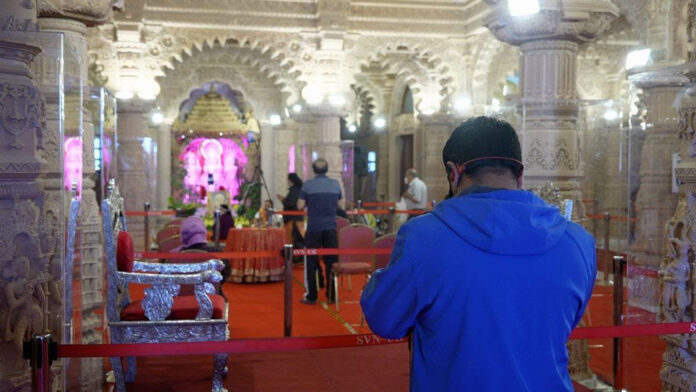
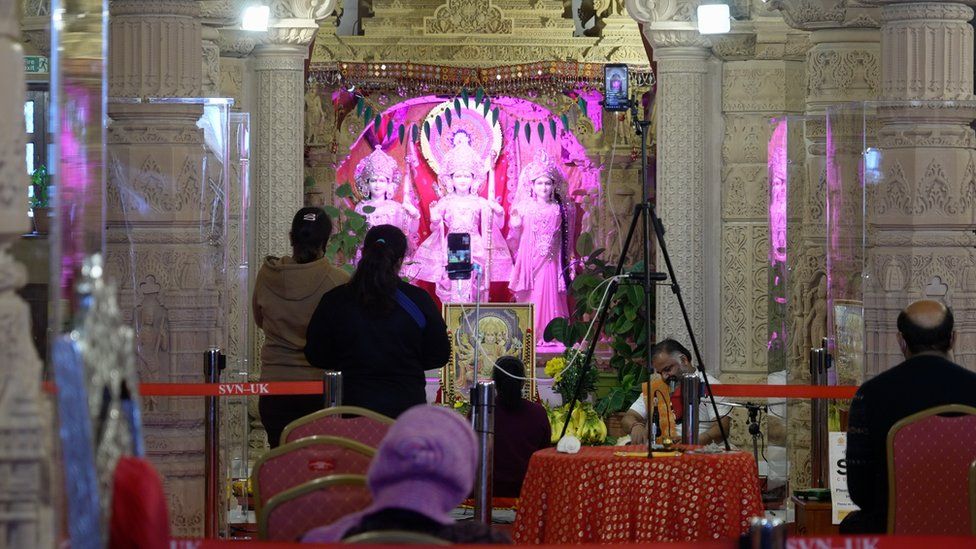
Scenes of people in India begging for oxygen during the nation’s record Covid surge have shocked and moved the world. And no-one has been more moved than the global Indian diaspora. So how are those in the UK responding to the crisis?
In a Hindu temple in Wembley, north-west London, the small congregation is chanting a special prayer for people thousands of miles away.
The Hanuman Chalisa is a devotional hymn believed to have immense power for helping those in need.
But for many people in Britain’s Indian communities, their minds are on very practical ways to help as well.
“There isn’t a member of the diaspora who hasn’t been touched by the events going on in India,” says Manoj Badale, chairman of the British Asian Trust.
“I have plenty of family in India, my sister’s a doctor, my niece and nephews are doctors. We’re hearing terrible stories. It’s really astonishing how the challenge has exponentially increased over the last week.”
The trust, run by British Asians to support development projects, is focusing its efforts on “the single most clear and present danger” to people in India: lack of oxygen.
The Prince of Wales has endorsed the trust’s emergency appeal, saying those suffering in India were in his thoughts and prayers.
He said Indian aid and ingenuity had been a support to other countries through the pandemic. “As India has helped others, so now must we help India,” he said.
The prince has made a personal donation to the trust’s Oxygen for India campaign.
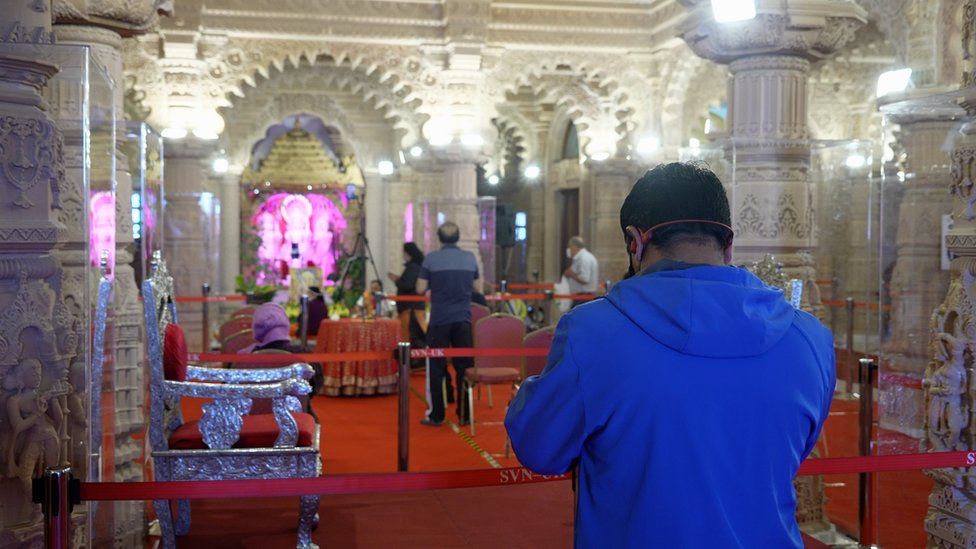
The trust is not alone: another independent Gofundme campaign run by British Indians blew past its initial goal of £160,000 – enough to buy 200 oxygen concentrators – in just one day.
Its total now stands at more than £300,000.
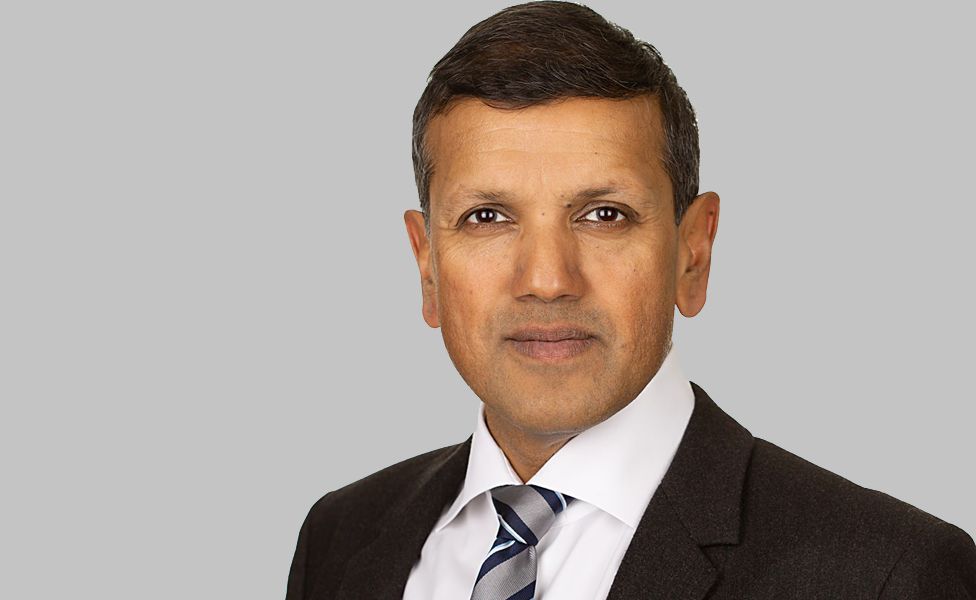
Mr Badale says the British Asian Trust has helped during crises in South Asia for 14 years, but this one seems different.
“It just feels so real – not just to British Asians, but to British people generally. Some of our biggest donations have been from Brits who’ve been watching the news,” he says.
Others in the UK’s extensive Indian medical community have been finding other ways to help.
On evenings and weekends in between working as a consultant cardiologist in Bristol, Amardeep Dastidar is on the phone to India offering telemedicine – remote – consultations and supporting overwhelmed colleagues thousands of miles away as they battle with Covid’s biggest wave yet.
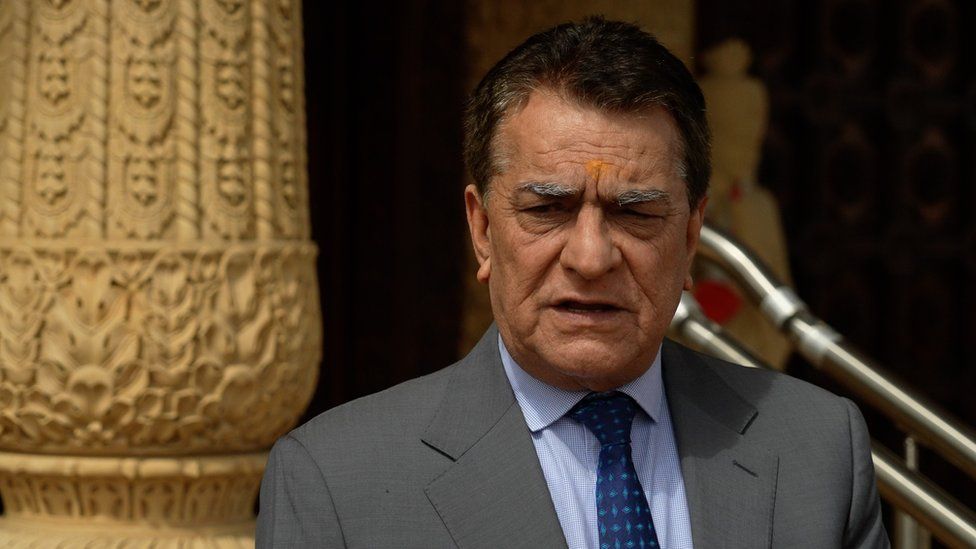
“Any disease’s second wave is always difficult, because the mental state is completely different compared with the first wave,” he says.
“I was personally hit, my brother was infected, had to be hospitalised, was in ICU for seven days. It was a challenging time.”
He has been offering support through relatives and friends in India, sharing expertise on treating Covid and translating it into local languages.
“Everyone is coming to the tipping point. I think everyone needs a bit of support,” Dr Dastidar says.
Bapio, the British Association of Physicians of Indian Origin, is working to extend the informal support offered by people like Dr Dastidar with an official programme of telemedicine to help medics in India cope with the colossal workload – alongside fundraising for oxygen equipment.
Naremdra Thakrar, chairman of the Shri Vallabh Nidhi Temple in Wembley, says the British Indian community feels the crisis in India very strongly.
“All their relatives are there, some of them want to travel there, they can’t see their relatives and some of them can’t even attend the funerals,” he says.
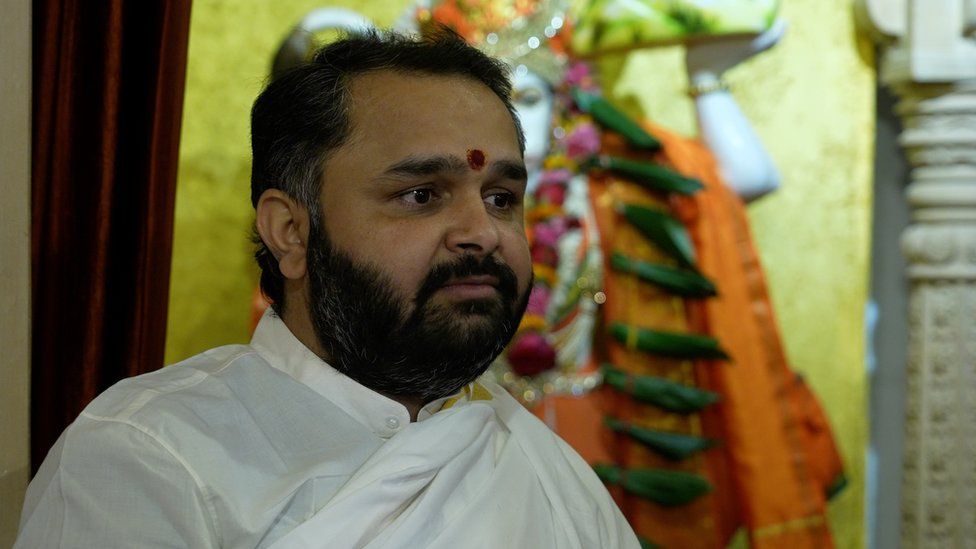
And so, as they fundraise and procure oxygen equipment, the congregation in Wembley prays.
“As a priest it’s my duty to pray for the universe, to pray for the world. The whole world is our family and every place is our responsibility,” says the temple’s priest, Bhavik Pandya.
The oxygen shortage means “people are very scared”, he says. “We are praying, please protect our motherland.”
SOURCE: BBC




